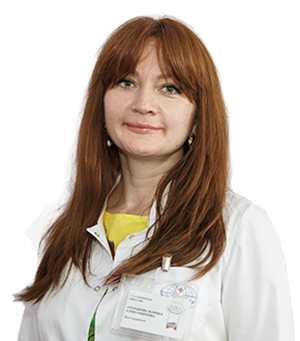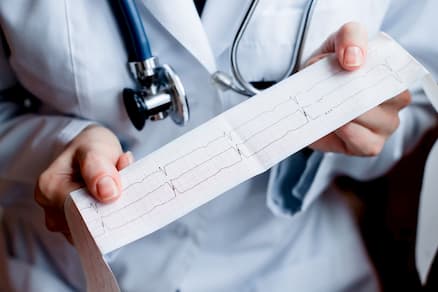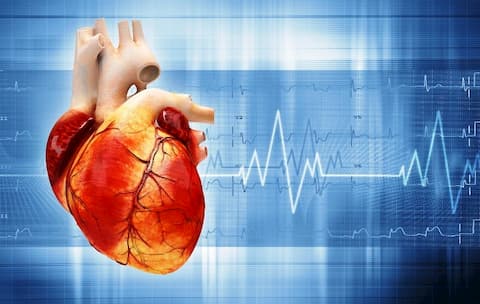Tachycardia

Cardiologist
Atamanova Marina
Experience 15 year
Cardiologist of the highest category. Candidate of Medical Sciences
Tachycardia is a common heart rhythm disorder (a type of arrhythmia). The heart rate becomes greater than 90 beats per minute. This phenomenon cannot be called a separate disease. Rather, it is a symptom that speaks either of physical / psychological stress, or of some kind of illness. If a person encounters a similar phenomenon, it is necessary to consult a doctor as soon as possible.
Causes of tachycardia
To begin with, let us clarify that with tachycardia, the heart rhythm, as a rule, remains the same and does not go astray - it is the frequency of contractions that is violated. This means that this problem does not always manifest itself only in sick people. In relatively healthy or healthy people, it can be caused by:
- unusual, increased or abrupt physical activity. In this case, there are peculiarities - an increase in the heart rate during sports is the norm. A sign of tachycardia will be a bad state: anxiety, restlessness, painful palpitations - up to loss of consciousness;
- severe stress, emotional excitement. Moreover, both strong negative and strong positive experiences can provoke an attack;
- heat. If a person does not tolerate heat and stuffiness, such conditions often cause a rapid heartbeat in him;
- excessive consumption of coffee, some kind of stimulating drinks (energy drinks);
- a sharp change in position. Many are familiar with the feeling when, during sleep, you have to wake up abruptly due to environmental factors and quickly get up. At such a moment, the heart seems to begin to "break out" from the chest and physically feel very strong.
As a rule, in all of the above cases, the heartbeat quickly improves with the elimination of negative factors. And in the process of the accelerated rhythm, the patient does not feel so bad.
However, the symptoms of tachycardia also appear against the background of certain diseases and can accompany serious conditions:
- arterial hypertension;
- heart disease;
- cardiosclerosis;
- myocardial infarction;
- fever due to infection;
- some pathologies of the brain, central nervous system, etc.
In such situations, tachycardia is accompanied by additional signs, including localized pain sensations and much more.
Tachycardia symptoms
Symptoms of tachycardia include the following:
- "Gaps" / interruptions in the heart - a person directly physically feels that something in the chest has "failed", "gone inside." This is a very common symptom familiar to many people;
- feeling short of breath in an atypical setting - for example, with minimal physical activity or when it was not;
- painful sensations (we have already clarified that they arise in specific diseases);
- light-headedness or fainting. Often everything is done with only dizziness.
Arrhythmia can be mild and short, or it can last longer and cause much more discomfort - everything is individual, so a doctor's consultation is required.
How dangerous is tachycardia?
For a healthy person, it is not dangerous, but for those who suffer from serious illnesses, cardiac tachycardia can be critical. Complications of this problem can be:
- the development of heart failure;
- loss of consciousness;
- increased risks of blood clots;
- heart attacks
- the development of a stroke.
When several “exacerbating” factors combine, this symptom can increase the risk of death. Therefore, the symptoms and treatment of cardiac tachycardia is a matter that needs to be understood.
Tachycardia associated with adolescence
Often this problem is observed in adolescence, when the child is actively developing. It is due to the fact that not all body systems keep pace with active development. Over time, this phenomenon usually disappears and no longer causes inconvenience.
Problem Diagnosis

For diagnosis, they first turn to a cardiologist, and if necessary, the doctor directs the patient to a narrower specialist - an arrhythmologist. The study consists of a detailed survey of a person who is experiencing discomfort, as well as a number of surveys:
- ECG. The method allows you to determine the type of problem, heart rate, rhythm;
- ECG Holter. If the first option allows you to examine the patient “here and now”, then Holter examination involves wearing a special apparatus during the day and allows you to understand how the patient's heart feels under normal conditions;
- echocardiography. A comprehensive examination of the heart gives an understanding if there are any abnormalities in the organ that cause tachycardia;
- electrophysiological research. It is prescribed only in the presence of a specific pathology and is done for exceptional indications in a limited number of patients. This is an invasive method by which the propagation of an electrical impulse through the myocardium is studied. Often it is necessary already before the operation to treat tachycardia;
- examinations related to the general condition of the body. They are appointed according to the situation and at the request of the doctor. This often includes hormone tests, sometimes MRI and other methods.
Since cardiac tachycardia manifests itself in different ways and is associated with different reasons, the examination plan will always be individual, so do not be alarmed if you are prescribed too few or too many examinations.
How tachycardia is treated
All methods can be divided into two groups: medicinal and surgical.
Medicines involve the use of two types of drugs for tachycardia. The first option is medications that affect the heart rate. It is very dangerous to use them yourself, since they are prescribed strictly depending on the type of rhythm disturbance, and if chosen incorrectly, they can only worsen the situation.
The second option for drugs for tachycardia is sedatives: both synthetic and herbal. They help well if an increase in heart rate is associated with stress, internal feelings, fatigue and other similar factors.
The cardinal method of treatment is surgery for tachycardia. Depending on the problem, patients are offered radiofrequency catheter ablation, an artificial pacemaker, or removal of a tumor of a specific gland or part of the gland itself. Such methods are required if the ailment is provoked by structural and functional changes in the heart or hormonal disorders.
If arrhythmia is caused by certain diseases (anemia, leukemia, etc.), then its treatment is the elimination of the underlying disease, that is, no specific intervention is required, only supportive means.
Home / folk remedies for treatment
If there is an attack of tachycardia, first you need to provide yourself or a person with such a problem with complete rest and the flow of fresh air into the room. It is recommended to use sedatives, but not too strong means, for example, tincture of motherwort, valerian.
You can put a cool compress on your forehead or face, or simply wash your face with moderately cold water. Also, a person with an attack needs to control breathing, you can take a deep breath, hold it and then slowly exhale.
Such measures are usually enough to put the rhythm in order, if its increase is not caused by some very serious problems. If the situation does not improve, but only worsens, you must definitely call an ambulance. Any other amateur performance in such a situation is simply dangerous.
Prevention of tachycardia

To reduce your risk of developing this problem, you need to lead a healthy lifestyle:
- eat well and varied. It is worth excluding too fatty, heavy, sweet foods;
- with a lack of vitamins and minerals from the diet, replenish them with the help of special means (only after consulting a doctor);
- lead an active lifestyle with a sufficient amount of physical activity, but without overwork and excessive stress;
- make sure that the psychological environment at home and at work is favorable and stable.
Often it is the wrong way of life that causes tachycardia - over the years it accumulates its harmful influence, after which problems with the heart rhythm begin.
FAQ
How to get rid of tachycardia forever?
It all depends on the reasons. Sometimes it is enough to simply change living conditions, while other situations require surgery.
How to treat cardiac tachycardia at home?
As such, treatment of tachycardia at home, if required, is not possible. You can remove the first symptoms, but then you need to see a doctor and figure out what is wrong.
What causes tachycardia?
The reasons are different: tachycardia arises from both banal stress and structural changes in the heart. This is where you need professional help to understand the real problem.
Having consulted a doctor and finding out what the specific problem is, the patient will receive either effective treatment or simple recommendations on how to normalize the heartbeat.




